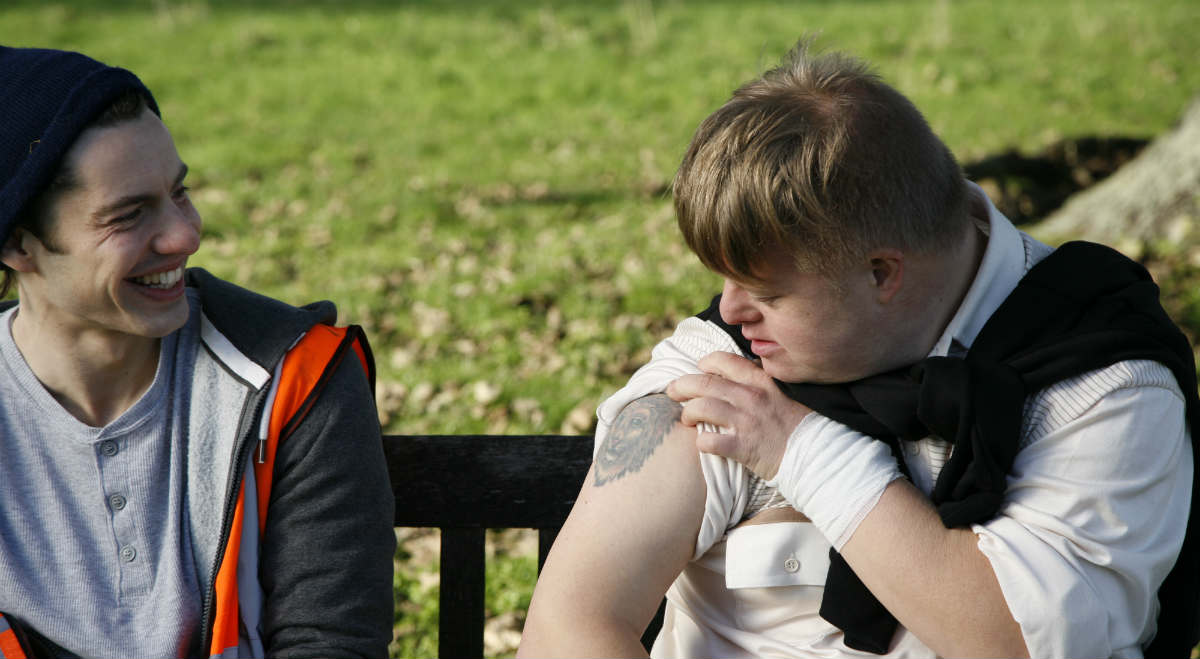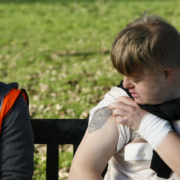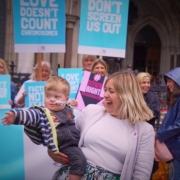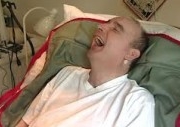My Feral Heart: finally, a positive portrayal of Down’s syndrome
 “We’re not so different, you and me” is the theme of My Feral Heart, a poignant British independent film about a young man with Down’s syndrome. Though filmed in a grey and overcast English village and a grey and overcast and damp English countryside and the slightly chaotic life of a care home, it projects a rare warmth of feeling.
“We’re not so different, you and me” is the theme of My Feral Heart, a poignant British independent film about a young man with Down’s syndrome. Though filmed in a grey and overcast English village and a grey and overcast and damp English countryside and the slightly chaotic life of a care home, it projects a rare warmth of feeling.
Luke, played brilliantly by Steven Brandon, has become his frail and elderly mother’s carer. He feeds her, bathes her, tucks her into bed, and entertains her. But when she dies in her sleep, he is forced to enter the semi-bedlam of a care home with other disabled people.
Still grieving for his Mum and dismayed by his new surroundings, Luke is deeply unhappy. But a warm-hearted carer, Eve (Shana Swash), coaxes him out of his shell. And one of the gardeners, Pete (Will Rastall), befriends him and keeps Luke’s tramps across the stubbled autumn fields a secret.
At the heart of the film are two intertwining themes: that we can only find happiness in caring for each other and that all of us are vulnerable and needy, not just people with Down syndrome. Like Luke, Pete has to cope with death and loss and finds a kind of redemption in looking after his very different friend. And the centre of Luke’s life becomes a mysterious waif of a girl whom he can nurse and protect.
Disability, then, is nothing to be feared, hidden away or ashamed of. Each of us is disabled and needy, just in different ways: some intellectually, others emotionally and socially. But the universal cure is self-giving and generosity.
Is this a religious sentiment? Not really. My Feral Heart is thoroughly secular in its outlook. The brief funeral for Luke’s mother in a chilly English country church with only him and Eve in the congregation is almost comical in its bleakness. “My nan used to say we come back as animals,” she responds when Luke asks what happens after we die. “I like animals,” says Luke.
A film about a character with Down’s syndrome could easily become condescending. But My Feral Heart is understated and unsentimental. It turns the discourse about disability on its head. Perhaps the most disabled people are those who fear the sacrifice of caring for others.
The release of My Feral Heart could hardly have come at a better time. The British health system seems determined to detect as many Down’s syndrome babies before birth as possible.
Last year, the UK Government announced that from 2018 on, the National Health Service will offer non-invasive prenatal testing to pregnant women who have been found through initial screening to have at least a 1 in 150 likelihood of having a foetus with Down syndrome. Since 90 percent or more of women who learn that their baby is affected end up having an abortion, the powerful new test effectively condemns another 200 British children to death.
A group called Don’t Screen Us Out has supported My Feral Heart, as a more realistic depiction of the life of an adult with Down’s syndrome: proud, quirky and big-hearted.
As an interesting aside, this film is currently screening in the UK through an innovative cinema-on-demand marketing system.
For instance, it’s possible to organize screenings in the UK, US, Australia and New Zealand with a company called FanForce. You simply fill out a booking form and choose the time and place of a screening. It’s then up to you to promote your event using the free promotional material, including your own ticketing page, Facebook Event and a flyer. If you sell the minimum amount of tickets required by your deadline, the screening will go ahead. If not, no worries, nobody loses any money!
In the UK, there were 120 screenings in four months, most of them through cinema-on-demand (36 of them today as part of World Down’s Syndrome Day). In fact My Feral Heart did significantly better than any previous cinema-on-demand film.
Why not give it a go? It might be hard to find a better way to express your support for Down’s syndrome research and the campaign to stop the holocaust of Down’s syndrome babies.
Michael Cook is editor of MercatorNet.
This post was originally posted on MercatorNet on 21 March 2017 to coincide with Down’s Syndrome Awareness Week (20-26 March)











Leave a Reply
Want to join the discussion?Feel free to contribute!